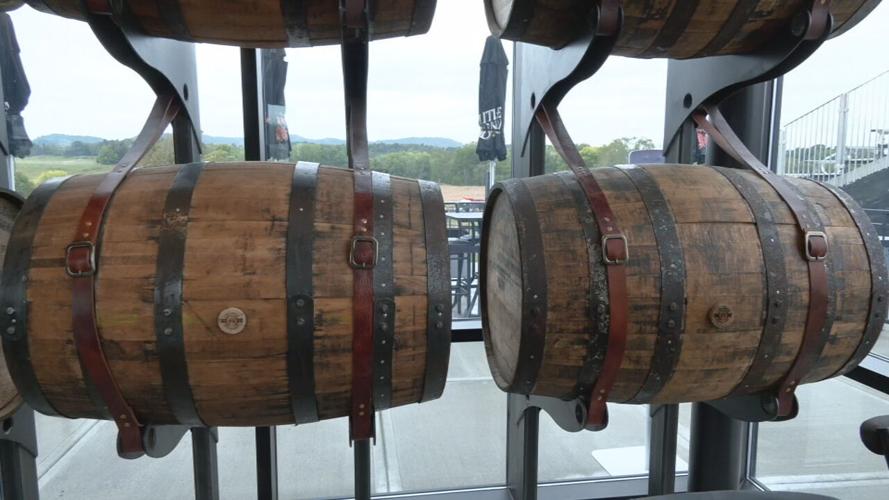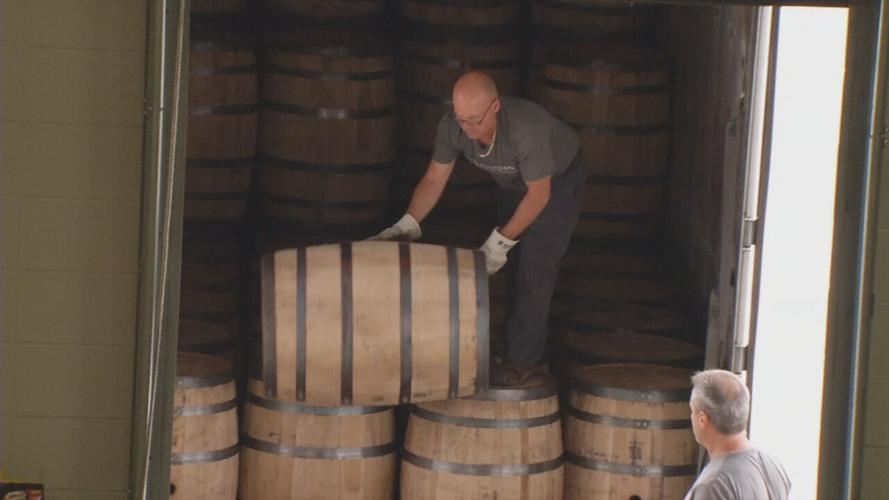LOUISVILLE, Ky. (WDRB) -- Some Kentucky school and fire districts can take a deep breath.
The final version of a law removing the bourbon barrel tax includes safeguards for school districts and fire and EMS.
The bourbon barrel tax is like a property tax bourbon distillers pay each year for aging barrels. It generates about $33 million a year for counties where the bourbon sits.
Lawmakers voted to remove the tax to benefit Kentucky's $9 billion signature industry, but communities where bourbon ages were concerned that the change would mean millions in lost revenue for important services.
Kentucky Senate President Robert Stivers, R-Manchester, said the compromise benefits both the bourbon industry and local school and fire districts that depend on that money.
"You may see some adverse consequences to it along the line, but overall, the positives will by far outweigh the negatives you're going to see more job growth, more construction, more people coming there for tourism, and we think it'll have an overall net by far a overall net positive," Stivers said.
Now that the measure has passed, the bourbon barrel tax will start phasing out in 2026 and full removal in 2043. The law calls for the bourbon industry to fill funding gaps for schools and fire once the 2026 phase out starts. Cities and counties that also benefitted do not have those safe guards.
Supporters said without the action, distillers' tax payments would have mounted amid surging inventories. They worried that producers would start building warehouses in other states, which could result in production moving away. The Bluegrass State is home to 95% of the world's bourbon production, the Kentucky Distillers' Association said. The barrel tax is assessed only in Kentucky, and its removal will stimulate more rounds of growth in a state where nearly 12 million barrels of spirits are aging in warehouses, it said.
"Kentucky distillers will finally receive equal treatment with every other manufacturer whose goods are not taxed during the production process," the distillers' association said in a statement.
The industry said it offered concessions to help cushion affected local governments, agreeing to a longer phaseout of the tax and protecting funding for schools, fire departments and ambulance services in counties where distilled spirits are stored.
For affected city and county governments, officials will have 20 years to "plan and diversify their tax bases," the distillers' group said. Distillers storing barrels in warehouses financed by industrial revenue bonds, to abate local property taxes, will pay barrel taxes as long as those contracts are in place.
Under terms of the bill, the industry projects local revenues from barrel taxes, as they are phased out from 2026 through 2043, would not dip below 2025 baseline levels until 2039. That projection is based on 10% annual industry growth; if growth continues at higher rates, it would be later before revenues fall below that baseline.
Last year the industry paid nearly $40 million in barrel taxes, about three times the amount in 2014, the distillers' group said. Aging barrels of spirits are taxed at both the local and state levels. At the state level, it's 5 cents per $100 of assessed value, it said. At the local level, it's based on each county's property tax rate. Last year, the total tax assessed value of all aging barrels in Kentucky reached a record level, surpassing $5 billion, the group said.
Based on the current trajectory for barrel filling and storage, those taxes are doubling every six to seven years, putting the industry on a course to reach $250 million in barrel taxes paid in 2039 without action to reduce taxes or move barrels out of state, it said. The distillers' association said its member distilleries are in the midst of a $5.2 billion building boom.
The Kentucky Center for Economic Policy said distillers already receive millions in economic development subsidies, income tax discounts and property tax exemptions. The distillers' group said that even with the relief from the barrel tax, distilling remains Kentucky’s highest-taxed industry.
Copyright 2023 WDRB Media. The Associated Press contributed to this story. All Rights Reserved.















